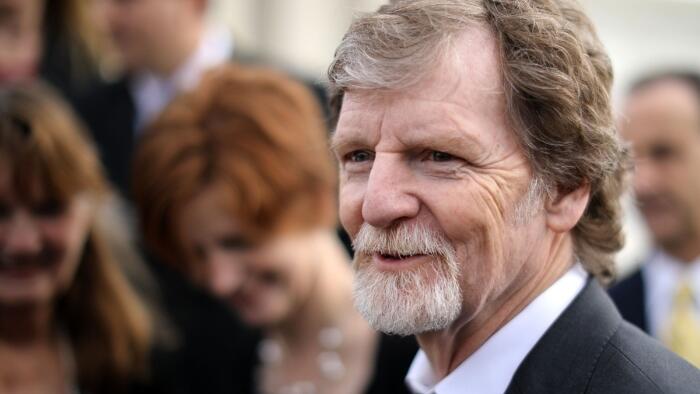Authored by Sam Dorman via The Epoch Times,
The lawsuit against a Christian baker who refused to bake a “gender transition” cake was dismissed by the Colorado Supreme Court on Oct. 8 in a ruling that left open core questions about discrimination and free speech.
In a 4-3 decision, the court said that it “cannot answer” the underlying constitutional question “because of a threshold issue of administrative law and statutory interpretation.”
The majority held that Autumn Scardina, who requested the cake, should have challenged the Colorado Civil Rights Commission’s handling of the dispute in an appeals court rather than bringing the underlying discrimination claims to a federal district court. Complainants, the court said, cannot “jump” from one legal path to another in bringing claims under the Colorado Anti-Discrimination Act (CADA).
The decision offered respite for the baker, Jack Phillips, who has been on a 12-year legal journey that started when he was sued for refusing to bake a cake for a same-sex wedding. In 2018, the U.S. Supreme Court issued a narrow holding that the Colorado Civil Rights Commission failed to treat Smith with neutrality, but left open questions about religious freedom in situations like his.
“Enough is enough. Jack has been dragged through courts for over a decade,” Alliance Defending Freedom (ADF) senior counsel Jake Warner said on the organization’s website. “It’s time to leave him alone.”
The justices in the minority faulted the ruling and said it gave Phillips “a procedural pass.” They noted that every fact finder and judicial officer who heard the case concluded the baker’s conduct violated CADA.
Scardina’s attorney, John McHugh, expressed disappointment and said he was evaluating if there were any remaining legal options. “The Colorado Supreme Court decided to avoid the merits of this issue by inventing an argument no party raised,” McHugh said.
Phillips’ Legal Journey
Phillips told a same-sex couple he wouldn’t bake their cake in 2012. Since then, his case has become emblematic of the nation’s ongoing conflict between claims to religious liberty and claims about discrimination and sexual orientation.
Phillips has maintained that while he serves everyone, he refuses to bake cakes that violate his religious beliefs, but critics say that his and others’ practices constitute an illegal form of discrimination.
Scardina, an attorney in Colorado, requested the “gender transition” cake—a pink cake with blue frosting—in 2017 and proceeded to file a claim under CADA. The call from Scardina was placed to Phillips’ business, Masterpiece Cakeshop, on the same day that the Supreme Court announced it would hear Phillips’ initial case.
The commission referred the issue to an administrative law judge, who later closed the case after Smith reached a settlement in federal court where he accused Colorado officials of violating his First Amendment rights.
ADF, the firm representing Phillips, told The Epoch Times via email that the state Supreme Court’s decision didn’t foreclose the possibility that Scardina could bring another lawsuit.
It’s possible that another individual could bring a similar lawsuit, although Warner has suggested that the U.S. Supreme Court’s decision in another case—303 Creative v. Elenis—protects Phillips’ right to free speech.
In 303 Creative v. Elenis, the majority ruled in favor of a Christian graphic designer who refused to create a website for a same-sex couple. The court held that the “First Amendment prohibits Colorado from forcing a website designer to create expressive designs speaking messages with which the designer disagrees.”
Before that decision, the Supreme Court declined hearing a case similar to Phillips’s wherein a Christian florist argued that the First Amendment protected her right not to serve same-sex ceremonies.
Meanwhile, the dissent in the Oct. 8 decision cast doubt on the legality of Smith’s conduct.
“I am concerned that Masterpiece and Phillips will construe today’s ruling as a vindication of their refusal to sell non-expressive products with no intrinsic meaning to customers who are members of a protected class (here, the LGBTQ+ community) if Phillips opposes the purpose for which the customers will use the products,” the dissent, written by Justice Richard Gabriel, read.
“Such a claim, though unfounded, could detrimentally impact those affected by such conduct.”
Loading…
Read the full article here


